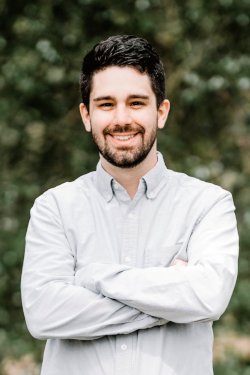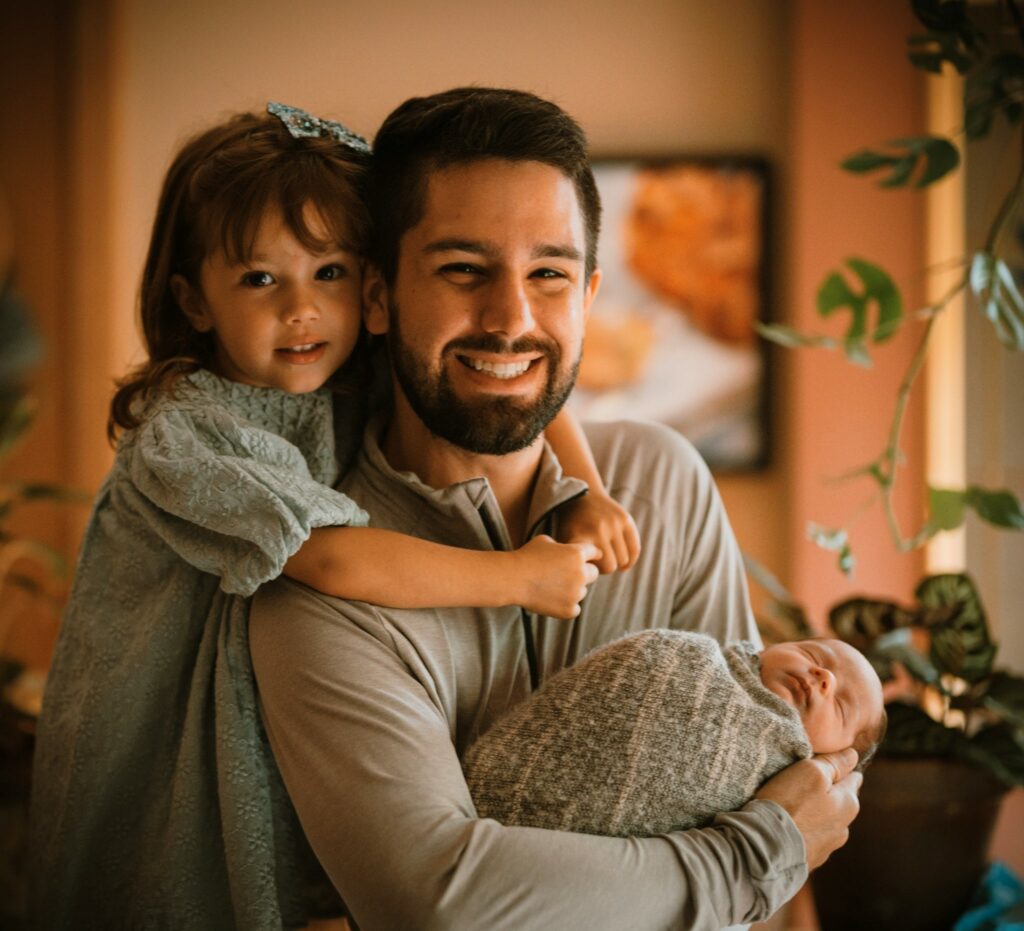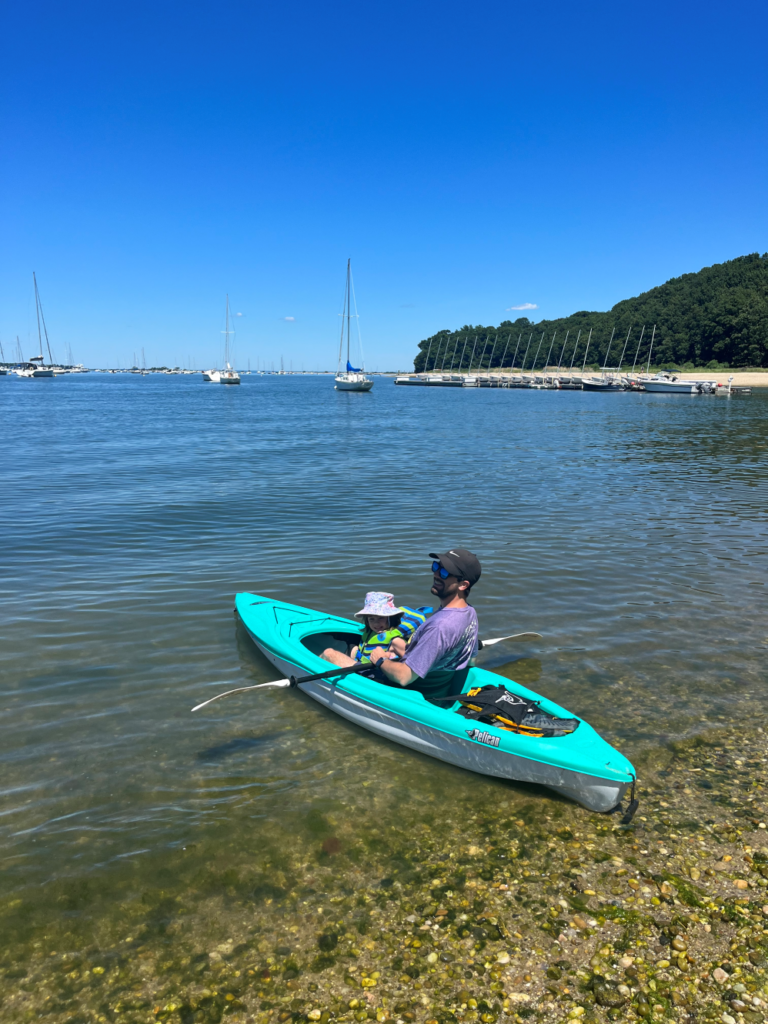Work-Life Balance is Key in the Hybrid Environment
Daniel Brandenburg, the 2022 Blavatnik Regional Awards Finalist in Physical Sciences & Engineering, offers tips on how to find a healthy work-life balance in the new age of hybrid work.
Published September 21, 2022
By Daniel Brandenburg
Postdoctoral Researcher, Brookhaven National Laboratory
2022 Blavatnik Regional Awards Finalist in Physical Sciences & Engineering

For many of us, COVID ushered in an era of working from home. I was traveling for a scientific conference when Brookhaven National Laboratory first sent all employees home to work. It was an eerie experience returning from a trip and just never going back to my office. At first, I loved working from home, since every extra minute with my wife and two young daughters is a gift. As I tried to balance everything, I quickly realized that working from home is a double-edged sword. As much as I loved being seconds away from my family, I really benefit from a “work” routine—of getting out of the house and going to the office.
The change in external environment naturally helped change my internal focus, shifting it onto my research and work. Then, at the end of the day when I left my office, the change in environment helped my to-do list slip out of my mind. Working from home removed that routine overnight along with the environment switching that I relied on to kick-start my morning focus and my winding down each day. At first, I didn’t even have a home office, since we lived in a small apartment. So, I worked wherever I could find some peace and quiet. But when you train yourself to focus on work at your dinner table or in your living room, it is hard to ever forget about work in your own home.
If left unchecked, that turns into an unhealthy cycle: work, eat, sleep, work.
And that is not a good routine for life or for long-term quality and productivity. Whenever I catch myself getting too overwhelmed with my research or falling into a bad routine, my family is what helps me find balance. That help comes primarily in two ways:
1) Balance is hard work. My family gives me something outside of work I truly care about enough to invest the hard work needed to find balance.
2) They expect me to succeed in finding balance, and they celebrate with me when I do.

I think number one is easy to overlook. Anything that requires hard work needs to be compelled by something you value, otherwise it can be hard to stay motivated. Most scientists genuinely enjoy their research, so what is the harm in another hour or two? Having a daughter that is eagerly awaiting my free time puts that into sharp focus and gives me a reason to put healthy boundaries on my time. I enjoy physics and most of my daily work, so it’s even more important for me to recognize and remember that time spent on work, is time not spent on something else that’s important and good.
But number two is at least as important for me. “Balance” isn’t something that happens once; it is a process and a pattern with ups and downs at different periods. And academia is a competitive field. Even more, I work in a large scientific collaboration with over 700 members from across the globe—there’s really no concept of a nine-to-five. So sometimes I work a long day or, if a major conference is coming, maybe a long couple of weeks. Those are the times when it is easiest for it to become normal, to slip into an unhealthy work routine. But my family doesn’t operate on deadlines, so they are expecting me to make time for them every day, regardless of the day or week. And when I do, they are happier, and I am too. This expectation for successful balance is a kind of restorative force, preventing me from ever getting too unhealthy. I am glad for that kind of positive pressure in my life.

So, practically speaking, I try to focus 100 percent on work when I am working. I set up my environment to remove distractions and unrelated interests. This lets me feel accomplished and honest with my time at the end of the day. Then, once the workday is done, I try to plan quality time with my family. For instance, my daughter and I have been making use of the hot summer to go kayaking together. She is still small enough to sit in my lap in a single kayak. We often spend hours together talking, exploring, and looking for fish. Even the more mundane parts of daily life can be planned for a better outcome. I acquired a love of cooking from my father, so often I’ll try to make dinner with my wife or daughter’s help. Since my older daughter is only three-and-a-half years old, I must find creative ways for her to help. Sometimes that means giving her an extra bowl and her own ingredients to mix. Sometimes it means making a mess—that’s my wife’s favorite 😉
These kinds of activities are my favorite because they engage my mind, they help me relax, and they often provide teachable moments for my daughters.
Daniel Brandenburg is a Finalist in Physical Sciences & Engineering for the 2022 Blavatnik Regional Awards for Young Scientists. You can learn more about him and the Blavatnik Awards at Blavatnikawards.org
This piece was originally published on the National Postdoctoral Association member blog as part of 2022 National Postdoc Appreciation Week. Current Academy Members can receive a 20% discount on a National Postdoctoral Association postdoc individual membership by emailing customerservice@nyas.org and requesting the NPA membership discount code
Learn more about the 2022 Blavatnik Regional Awards for Young Scientists
